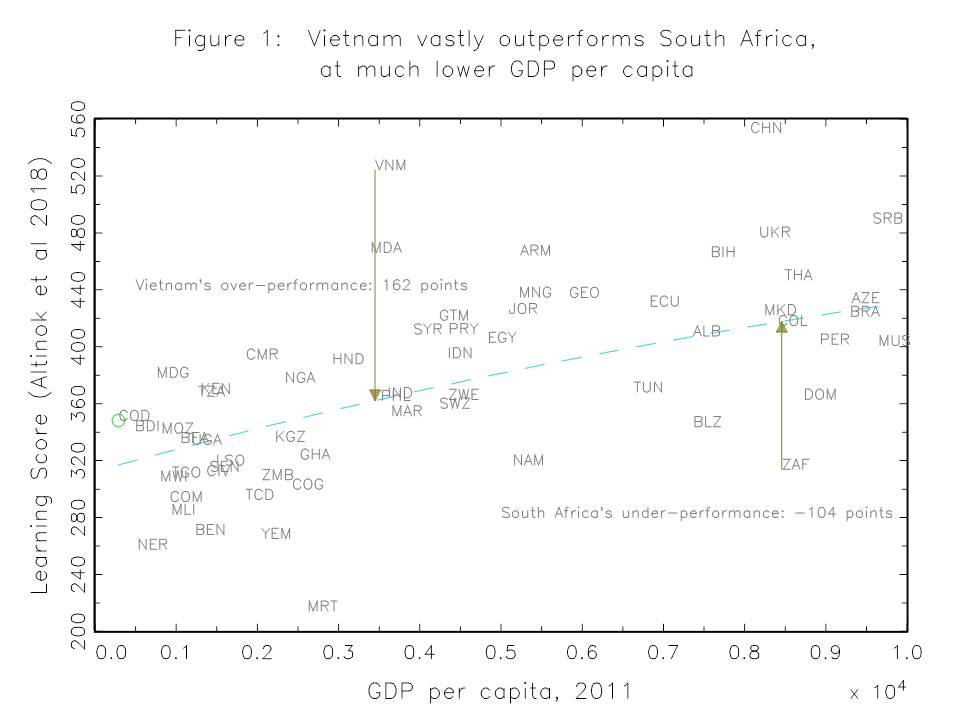What’s the big idea? The big idea is that there are massive differences across countries in the extent to which children are acquiring the skills and competencies the curriculum intends them to have from the schooling process they are exposed to. Some countries, like Vietnam produce student learning that appears to be near the equal to that of the OECD whereas countries like South Africa are much richer and yet have much worse outcomes–and worse than much poorer African countries like Kenya. The bulk of these differences are not explained away by either “thin inputs” (books, qualifications of teachers, class sizes) not by expenditures or generally level of development. Something about the way in which the system of basic education operates functionally differs in ways that produces large differences in outcomes. The RISE research project is about identifying what those system elements are and how countries can accelerate their learning progress.

CREATING EDUCATION SYSTEMS COHERENT FOR LEARNING OUTCOMES. RISE WORKING PAPER 15/005.
World Development Report 2004, Making Services Work for the Poor. Chapters 3 (Framework) and Chapter 8 (Education).
“The Risks to Education Systems from Design Mismatch and Global Isomorphism: Concepts, with Examples from India.” UNU-WIDER Working Paper 39. 2014.
“Making Primary Education Work for India’s Rural Poor: A Proposal for Effective Decentralization.” Social Development Working Papers #6: South Asia Series, 2006. (with Varad Pande).
The World Development Report 2018 Learning to realize education’s promise was a major and important advance in the global discussion about promoting learning in basic education.